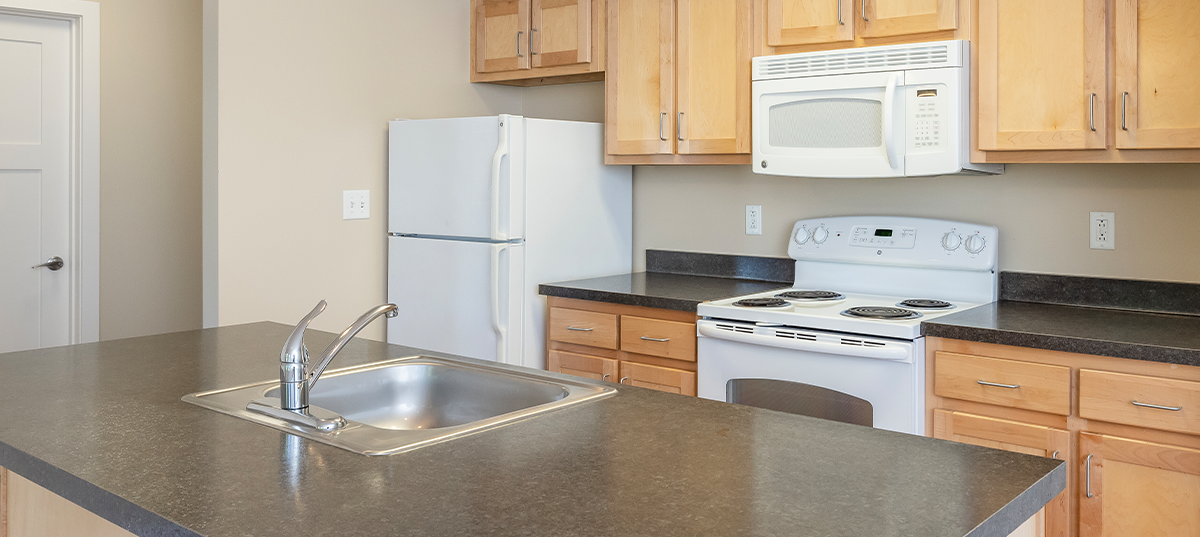Eight Things to Not Put in the Garbage Disposal

February 2024
One of the great things about living at South and Hickory Place is that every apartment comes with a fully outfitted modern kitchen – including maple cabinets, microwave, refrigerator, stove, dishwasher, and garbage disposal. And if you love to cook, you know that a garbage disposal is one of those little amenities that can make a big difference.
While your garbage disposal is a convenient way to dispose of food waste, it’s important to know that not everything is disposal-friendly. Misusing yours can lead to clogged pipes and damaged disposals. That’s why we want to share some common items that you might think are safe for your garbage disposal but should be avoided.
Coffee Grounds: A Clogging Culprit
Many people assume that coffee grounds are safe for the garbage disposal due to their fine texture. However, this is a misconception. Coffee grounds can accumulate in pipes, leading to clogs. Over time, they can compact and create a sediment-like layer that is difficult to remove. Instead, consider adding coffee grounds to a compost bin (from our VIP Program partner Impact Earth) or using them as fertilizer for acid-loving plants.
Eggshells: The Myth of Sharpening Blades
A common myth is that eggshells help sharpen the blades of a garbage disposal. This is not only untrue but also potentially harmful. The membrane layers of eggshells can stick to the sides of the disposal and wrap around the shredder ring, leading to malfunctions. It’s better to compost eggshells or dispose of them in the trash.
Fibrous Vegetables: Tangling Up Your Disposal
Vegetables like celery, asparagus, and corn husks have long, fibrous strands that can entangle the blades of your garbage disposal, leading to motor burnout. These fibrous materials are better suited for composting or should be thrown in the trash.
Bones and Fruit Pits: Hard on the Blades
Bones and fruit pits are too hard for most garbage disposals to handle. They can dull the blades, cause jams, and even lead to motor burnout. These items should be disposed of in the trash.
Potato Peels: The Starchy Mess
Potato peels are rich in starch, which can stick to the sides of the disposal and pipes, forming a thick paste that can lead to clogs. It’s safer to compost or trash potato peels.
Medication: Environmental Hazard
While it might seem convenient to dispose of expired or unwanted medication via the garbage disposal, this practice is harmful to the environment. Medications can contaminate water supplies and harm aquatic life. Instead, take your old medications to the Monroe County EcoPark. They can take old medicines, hazardous materials, electronics, and more for free.
Grease and Oils: The Slippery Slope to Clogs
Pouring grease, fats, and oils down the disposal seems easy and harmless. However, once these substances cool, they solidify and can cause significant blockages in your plumbing. Instead, let grease cool and solidify in a container before throwing it in the trash. The EcoPark also accepts used cooking oils.
Non-Food Items: A Definite No
It should go without saying, but non-food items like plastic, paper, metal, or glass should never be put in a garbage disposal. These materials can damage the blades and motor, and potentially cause personal injury.
